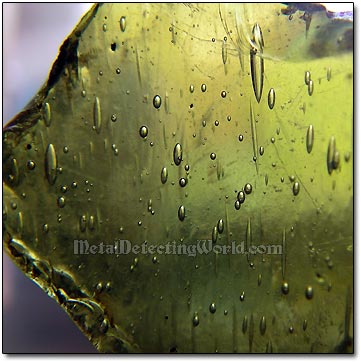Metal Detecting Research and Exploration - A Complete Guide, page 60
Footwork and Observation: Exploring the Fields To Locate Hunt Sites
APPROXIMATE DATING OF CHINA SHARDS and BOTTLE GLASS PIECES
(CONTINUED from Page 59)
China shards are the most helpful in figuring out the time of the former settlement's disappearance - either before the 19th or 20th century. It is very easy to determine if the shards belong to the plateware manufactured before the 19th century. The old porcelain pieces show crackled glaze, spots without glaze, and brown-colored edges. The darker the color of edges, the older the shards.
Crazing on Glaze of Pre-19th Century Porcelain Shards
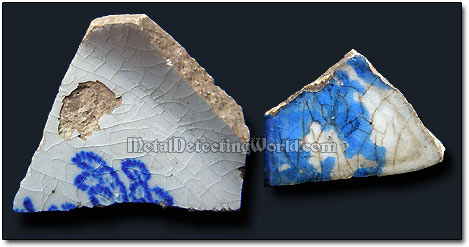
The 19th century porcelain shards can be distinguished from the older shards by the absence of crazing on glaze and availability of the manufacturer's coat of arms stamped on plateware. The characteristics that distinguish the 19th century shards from the 20th century ones were mentioned on page 53.
Variety of Pre-19th and 19th Century Porcelain Shards
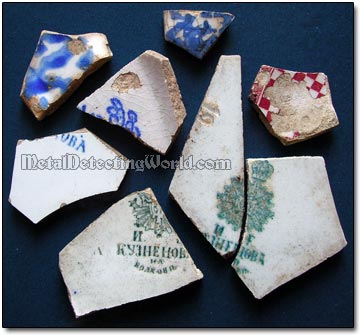
Fragments of old bottle glass also serve as indicators of the former dwelling site and may reveal the site's age.
Old Bottle Glass Fragments, circa 17th-19th Centuries
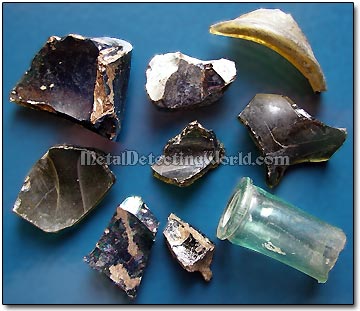
The best way to distinguish old glass fragments from the modern ones is to look at the sun through the glass. If the glass does not contain air bubbles, it is modern.
Air Bubbles Inside the Old Bottle Glass, circa 17th Century
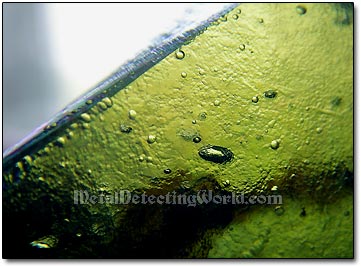
Air Bubbles Inside the Bottle Glass, circa 18th Century
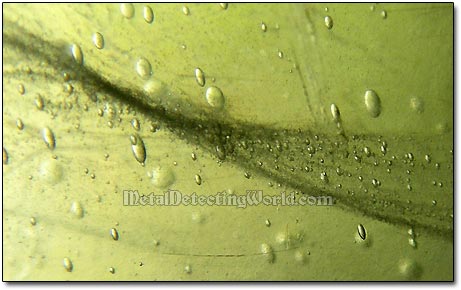
Air Bubbles Inside the Bottle Glass, circa 19th Century
